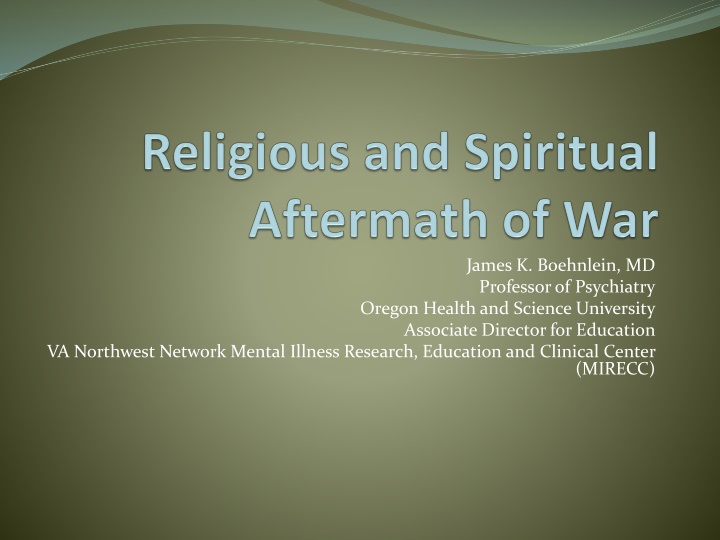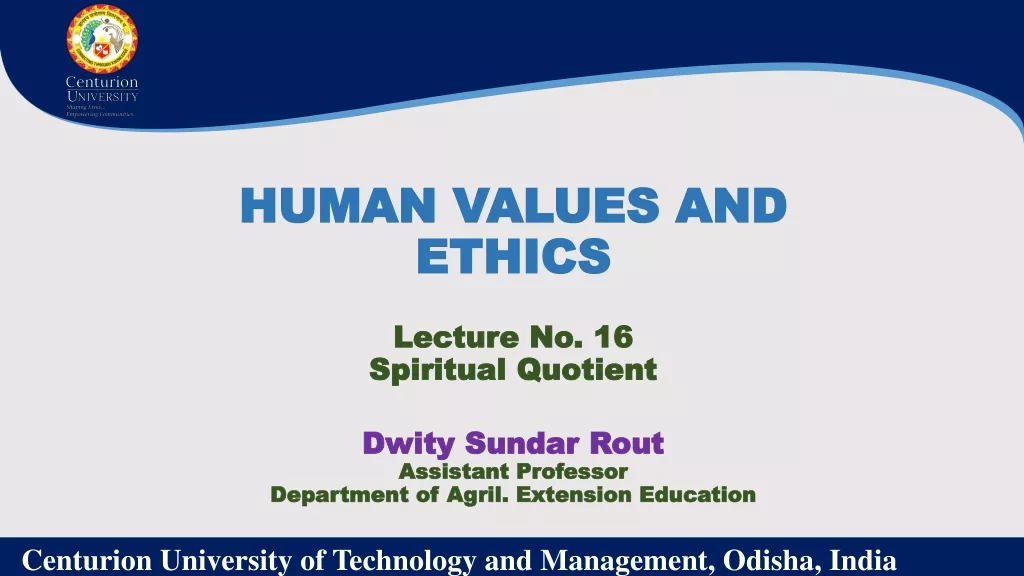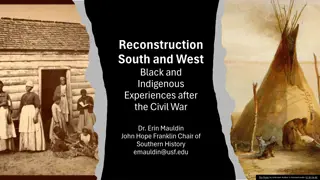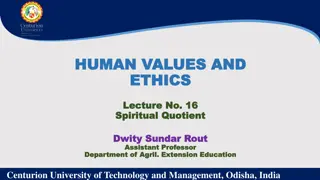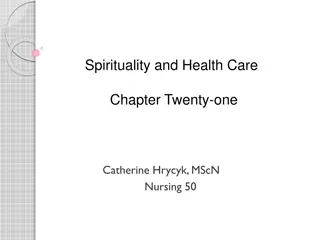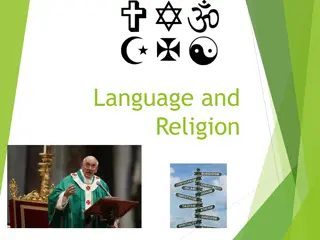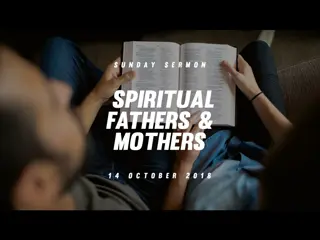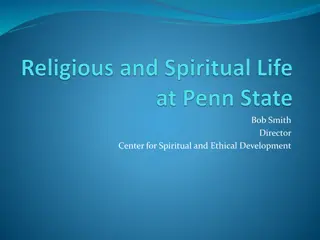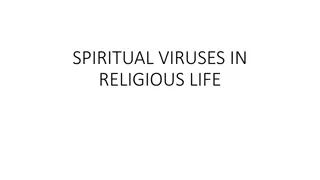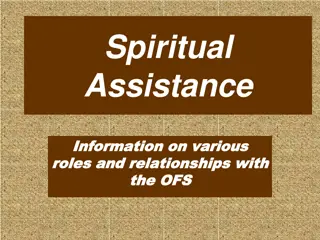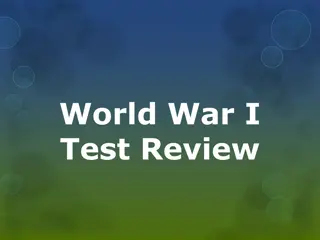Religious and Spiritual Aftermath of War
"Dr. James K. Boehnlein is a distinguished psychiatrist serving as a Professor of Psychiatry at Oregon Health and Science University. He also holds the role of Associate Director for Education at the VA Northwest Network Mental Illness Research, Education, and Clinical Center (MIRECC). With expertise in mental health research and education, Dr. Boehnlein contributes significantly to the field of psychiatry."
Download Presentation

Please find below an Image/Link to download the presentation.
The content on the website is provided AS IS for your information and personal use only. It may not be sold, licensed, or shared on other websites without obtaining consent from the author.If you encounter any issues during the download, it is possible that the publisher has removed the file from their server.
You are allowed to download the files provided on this website for personal or commercial use, subject to the condition that they are used lawfully. All files are the property of their respective owners.
The content on the website is provided AS IS for your information and personal use only. It may not be sold, licensed, or shared on other websites without obtaining consent from the author.
E N D
Presentation Transcript
James K. Boehnlein, MD Professor of Psychiatry Oregon Health and Science University Associate Director for Education VA Northwest Network Mental Illness Research, Education and Clinical Center (MIRECC)
Questions After Trauma Unpredictability of life and death Loss Moral Complexities
Religion Across Cultures Explanation of how universe began, how life is maintained, what happens when life ceases to exist Explanation of life s meaning and rationale for suffering Symbols, beliefs, values Relationship between the self and the world
Spirituality Bridges religion and science Insightful relationship between self and others Personal values Meaningful purpose for life Connectedness between self and the natural/supernatural
Explanatory Frameworks Pain, suffering, atonement, forgiveness Judaism Restoration of relationship with God through atonement Christianity Repentance, forgiveness and rebirth Buddhism Acceptance of suffering; reincarnation Islam Death divinely ordained impact on survivor guilt Hinduism Suffering a result of conflict/tension
Core Assumptions Altered by Trauma Belief in personal invulnerability Perception of an understandable world Trust in self and others
Healing After Trauma: Psychotherapeutic Themes Trust Security Acceptance Identity and Self-Worth Social Connectedness Grief and mourning Anger and Revenge Control Meaning
Barriers to Treatment- Beliefs and Values Avoidance Pride in self-reliance Loss of control/autonomy Treatment is for those who are weak, crazy Provider will not understand or believe trauma Societal rejection
Factors in Religious / Spiritual Healing Telling the story honestly Ending isolation Moral inventory Forgiveness Helping others Giving and receiving love
Clinician Reactions Sadness Anger Vulnerability Fatigue Intolerance of other patients Intolerance/avoidance of violence images Indifference vs. overinvolvement
Ethical Principles in Treatment Creation of trust, predictability Cause no harm Respect for personal boundaries Primacy of reducing suffering and promoting health Respect for patient autonomy, independence, and creativity Promotion of justice
